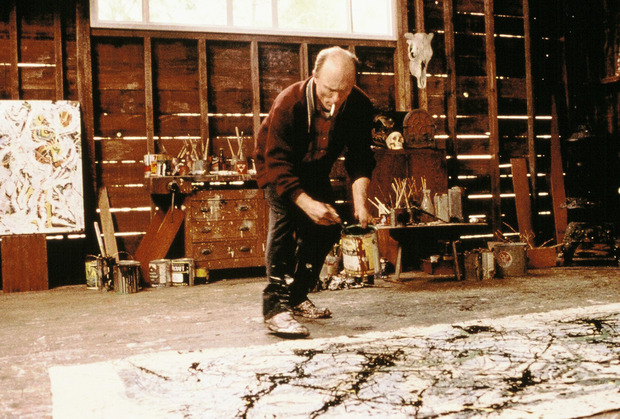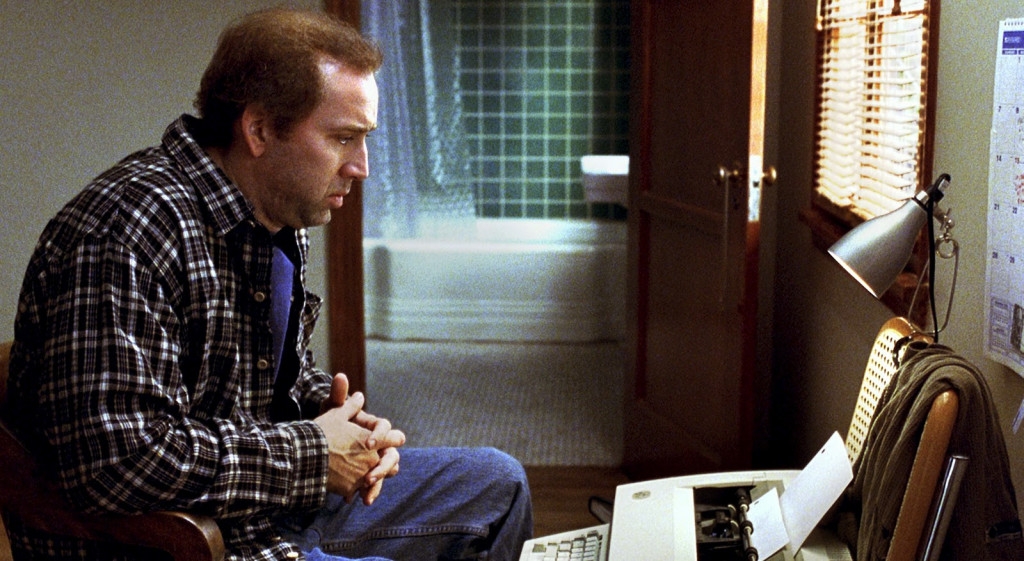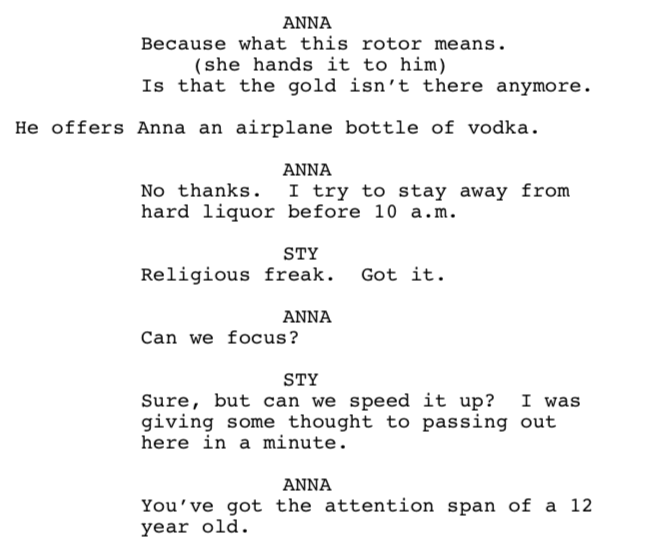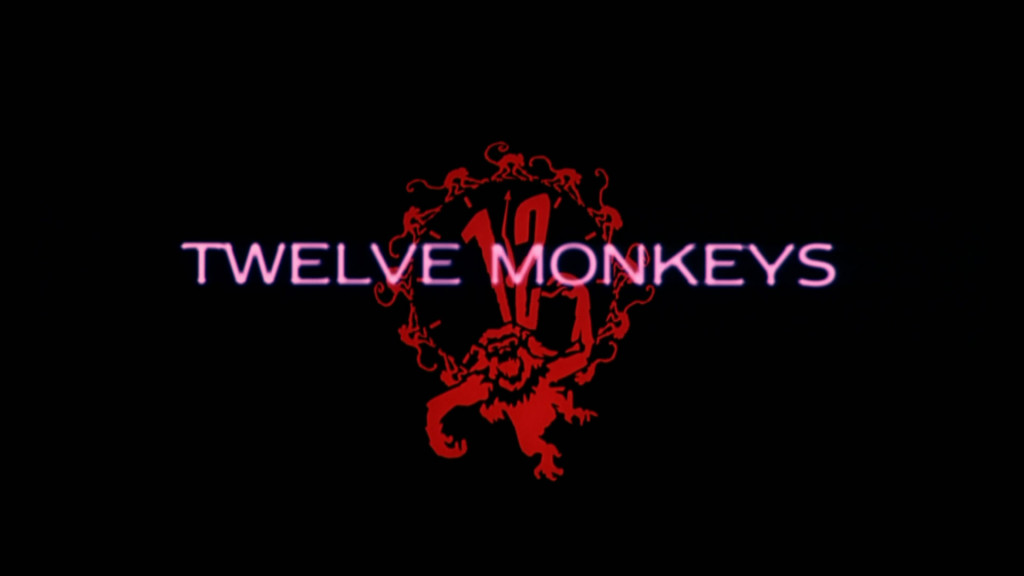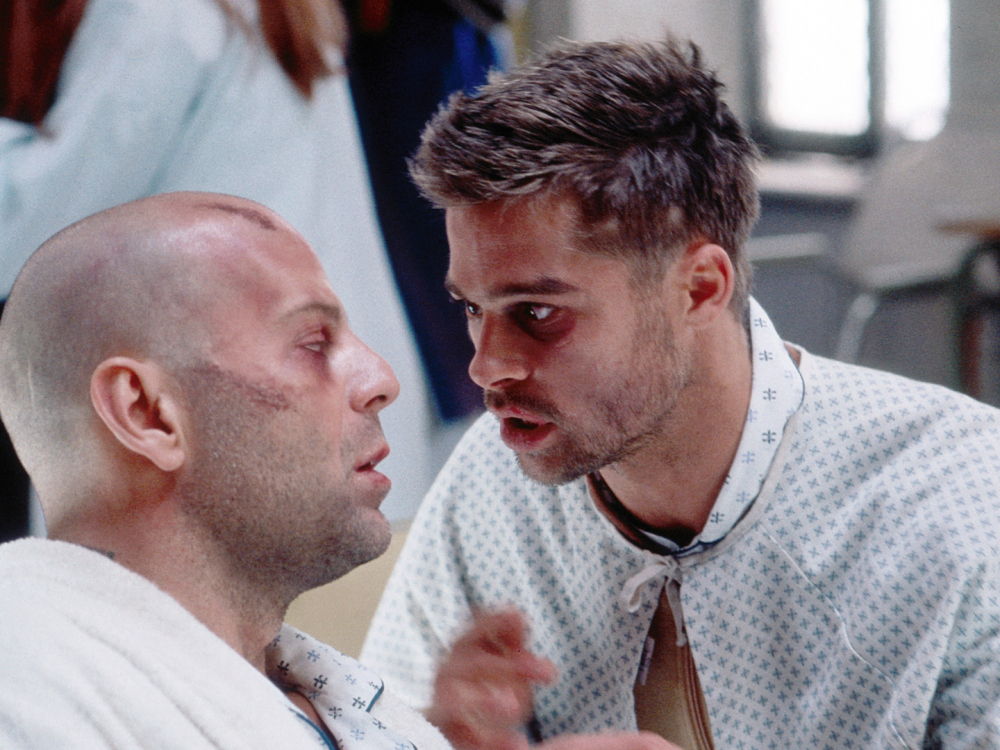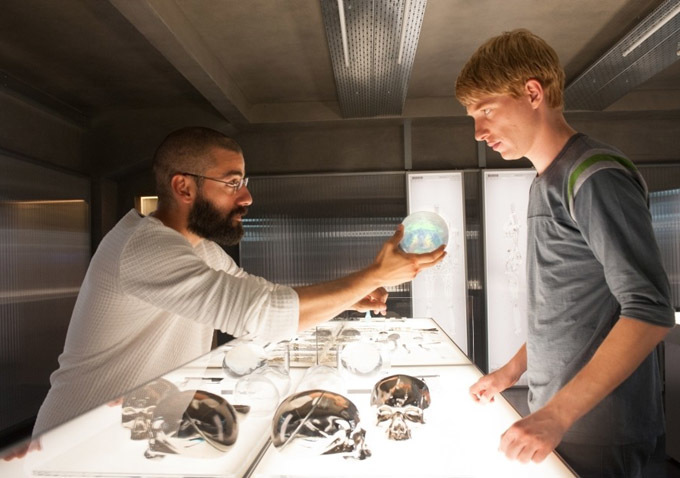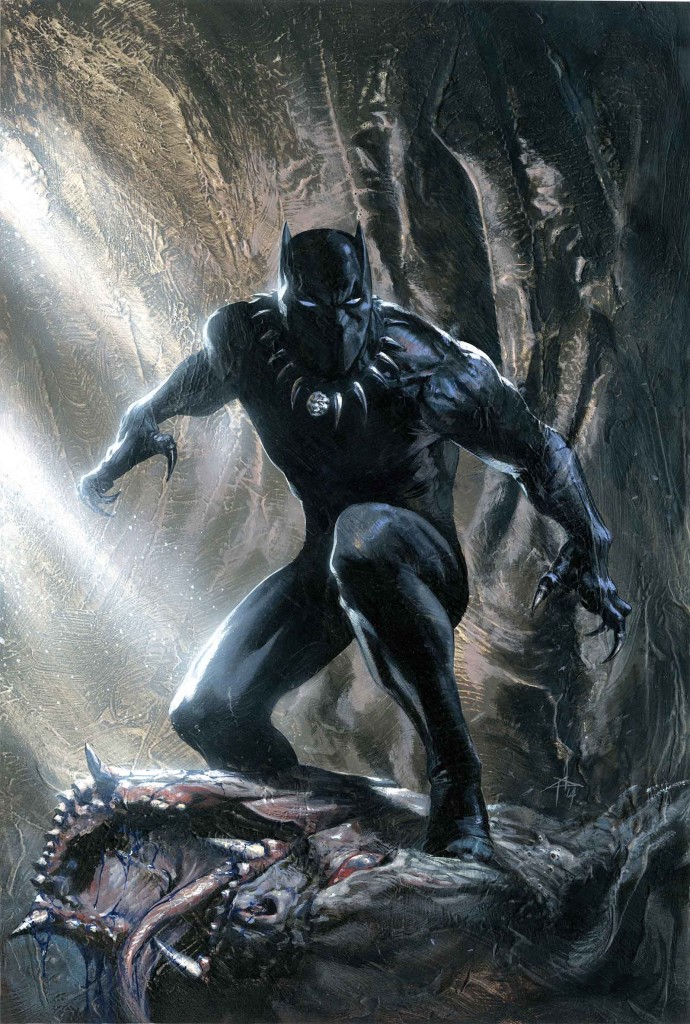 A Marvel superhero? Or a writer’s demons?
A Marvel superhero? Or a writer’s demons?
Screenwriting is in a funny place right now. The days of the huge spec sale are more a part of the past than the present. When you meet with managers and agents these days, they’re more likely to ask you about your latest TV pilot than your latest feature spec. As Marvel grows its brand, filling more and more of those precious movie slots with its bottomless pit of superhero characters, there’s more uncertainty than ever about what the industry wants. I mean it used to just be, “Write something marketable that you’re passionate about.” But that’s not enough anymore. You need a strategy.
With that said, most writers still make it into the industry the old fashioned way – hard work. They write something that speaks to them. It ends up being good enough for people to pass around. The writer gains fans, writes something else, gains more fans, builds his network, and sooner or later, writing assignments start coming his way. They’re small at first, but they get bigger as the writing improves. Some of these writers take the feature assignment career route. Some join TV staffs. Eventually, they become consistent working writers in the industry.
Now what they do from there – whether they stay at that low-to-middle working professional status or break into the elite level – is dependent on a number of factors. And that’s what I’d like to talk about today. I want to discuss “writer stages.” I read so many screenplays and most of the time after I finish, I think, “If this writer doesn’t change, they’re going to be stuck in this stage for the rest of their lives.” Part of being a good writer is recognizing where you’re at and working to fix your weaknesses. If you’re not willing to do this, stop writing now. You need to be a student of this craft, as well as your involvement in it, if you want to succeed.
STAGE 1 – THE ARROGANCE STAGE
WRITER NICKNAME – “THE CONTEST SUPPORTER”
The Arrogance Stage represents one of the most common misconceptions about screenwriting – that it’s easy. People see movies like “Need for Speed” and know, for a fact, that they can write something better. So they write a script, maybe two, and start hawking them around town, waiting for everyone to hail them as industry saviors. These scripts are the worst scripts I read, by far, as there’s a lethal combination of suckitude going on. One, the writer is using the industry’s worst movies as their bar. Therefore, everything is written to be only slightly better than that terrible movie they saw. The irony is that even though these writers THINK they’re better than the writers who wrote Need for Speed, they’re actually a lot worse. So they’re giving us an even suckier version of an already sucky movie.
And second, the writers have never studied storytelling on any level. It’s such an arrogant oversight that it actually infuriates the reader. It would be like wanting to be a surgeon but never studying the inside of the body. These scripts always lack original concepts, build, suspense, rhythm, character development, structure, or anything resembling what makes a story work. To add to the fun, there is so little respect for the craft, that the scripts are often riddled with misspellings, misused words, grammatically incorrect sentences, and more. I call these writers “Contest Supporters” because their scripts typically comprise of 75% of all contest entries and therefore fund the contest for the real writers.
To Break Out: To break out of The Arrogance Stage, you need to come to terms with reality. Your first scripts probably aren’t any good. They might be. But you need to operate under the assumption that they’re not. One of the biggest steps a beginner writer can take is admitting that being a professional screenwriter is hard. Once they do this, there will be a tectonic shift in the way they approach the craft. They will now put some real time and effort into the practice, and this should thrust them into Stage 2 in no time.
STAGE 2 – THE FOG-OF-WAR STAGE
WRITER NICKNAME – “THE JACKSON POLLACK”
I call this the “Fog of War” stage because you rarely know where you are as a screenwriter while in this stage. How effective can you be if you’re not sure whether you’re 20 feet from the enemy or 20 miles? The commonality I see with these scripts is tiny bursts of good writing, followed by long chasms of bad writing. Why does this happen? Well, you’ve only just started learning the principles of screenwriting. So you know a few things, like what “3 act structure” and “character arc” mean, but since you’ve only written 2-3 screenplays, you’ve only been able to practice these principles 2-3 times. When have you ever perfected anything on the 3rd try? Likewise, you haven’t learned how to deftly hide exposition yet, how to come into scenes late, how to use subtext (etc., etc., etc.). Some of these things will come more naturally than others, but rarely can a writer nail them all immediately. I call these writers “Jackson Pollocks” because it feels like they’re randomly throwing paint against the canvas, hoping that the sheer earnestness of their intent will result in a masterpiece.
To Break Out: You need to embrace the study-bug in this stage. Read as many screenwriting books as you can afford. Read as many screenplays as you can find time to read (produced, unproduced, and amateur!). As soon as you learn something, go practice it. Study, read, write. Study, read, write. This stage takes time, because learning all the elements of good storytelling doesn’t happen overnight. But if you’re serious about screenwriting, this tends to be the stage that gives you your screenwriting armor.
STAGE 3 – THE STAGE OF DEATH
WRITER NICKNAME: “THE CYBORG”
I call this The Stage of Death because this is where many screenwriters, writers who have given years to the craft, disappear silently into the night, never to be heard from again. They’ll feel like they gave it their all, but couldn’t get over the hump for some reason, and so they leave. I have some strong opinions about these writers. Real writers never give up. They NEED to write. First and foremost, writing has to be FOR YOU. It has to be an outlet that you can’t stop yourself from doing, like a drug. Sure, as you get older and the complexities of life get in the way (i.e. supporting a family), you’ll have less time to write. But if you love this craft, you should never stop writing.
While Stage 1 scripts make me the angriest to read, and Stage 2 scripts are the most boring to read, Stage 3 scripts tend to be the most frustrating to read. That’s because by this stage in the game, the writer generally knows what they’re doing. They know how to tell a story. The problem is, they haven’t figured out how to tell a good story. A big part of the problem is that these scripts are driven too fiercely by structure and technicalities. Writers have learned what the books tell them to do, but they’re overplaying these elements, creating a robotic experience for the reader (hence: “The Cyborg”). These are the scripts that make the quarterfinals, maybe even the semifinals, of contests, and they show a respect for and an understanding of the craft. But they just don’t resonate. It’s almost like the scripts lack soul.
To Break Out: To break out of this stage, two things need to happen. First, there needs to be a change in philosophy. You know the technicalities of screenwriting. Now you have to go back to the mindset of a beginner. Instead of trying to meet technical checkpoints, start writing on “feel” again. Let your emotions guide you. Take a few chances. Break a few rules. The problem with writing a technically proficient script is that it reads like a technically proficient script. It’ll get you high grades with your professors, but low grades from readers who actually want to be moved. To get to the next level, you have to start emotionally connecting with the reader, and writing on emotion will help that. Now don’t get me wrong. You still want to follow the general guidelines of good storytelling. You just no longer want those guidelines to dominate your script.
The second thing that needs to happen is you need to identify your biggest weaknesses and work on them. If you suck at dialogue, you need to dedicate huge chunks of time to improving your dialogue. Finding your weaknesses requires getting HONEST feedback from others, not the “rah-rah” feedback that makes you feel good but keeps you chugging along at the same level. Locate where you suck and work to improve yourself.
STAGE 4 – THE TINY STAR STAGE
WRITER NICKNAME: “THE FRUSTRATED PROFESSIONAL.”
Getting to this stage is a big deal. You feel like you’ve crossed a major hurdle. You either have a manager or an agent (or both), secured a legitimate option or two (from a big production company) and/or have gotten assignment work. But for whatever reason, you still feel like an outsider, like a Stage 3. Your scripts aren’t landing on that prestigious Black List. Nor are they being fielded by the upper echelon of Hollywood – the people who can actually make things happen. What’s wrong?
Well, I can tell you what I see in the scripts themselves. These offerings are better than Stage 3 scripts. But upon reading them, I always feel like I’ve read them before. While the characters are well-written and the story is solid, I generally know what’s going to happen next, and therefore the story feels like it’s going through the motions. In some ways, these scripts are just as frustrating as the Stage 3s because you can see the potential for the story to break out, but it never does.
To Break Out: Three things need to happen to break out of this stage. First, take more chances. If you want to write something great, you need to take chances, because those chances are going to lead to the differences that make your script stand out against your competition. Taking chances is terrifying. But since the best stories are unpredictable, you need to make some unpredictable choices to write something great.
Second, you need to focus more on character. When I read the top scripts out there, it’s the characters that take hold of me, who make me feel something, who give me the warm and fuzzies. Rarely does a plot point touch me on an emotional level. So learn how to build interesting characters, how to build likable characters, how to build compelling relationships, how to arc characters, how to create problems between characters that need to be resolved. Learn how to make relatable characters and situations so that readers feel a connection to the people you’re writing. In short, focus more on character.
Finally, challenge yourself more. Most writers believe they only have a fifth gear. You actually have a sixth gear. And this is the gear that turns good scripts into great ones. Let me give you an example. Ben Ripley, the writer of Source Code, wrote a series of drafts of Source Code where an investigator comes in and investigates a time-altered train crash. He created the “5th Gear” version of this story. And he could’ve stopped there and sent the script out. But he decided to challenge himself, to push and find the element of the story that turned an average script into a great one. This led him to realize a more interesting take was to shift his main character from an impartial investigator to one of the passengers on the train. The next thing he knew, his script became one of the hottest in Hollywood.
STAGE 5: THE SUPERNOVA STAGE
WRITER NICKNAME: “THE TRUE PROFESSIONAL”
A Stage 5 script is a script that moves me. And you move people by creating compelling realistic characters going through universal problems that the average person relates to. Combined with a story that tackles strong universal themes (forgiveness, family, love, etc.) you can really move a reader. When you add an original concept and an unpredictable plot, you can count yourself among the best writers in the world. Of course, even Stage 5 writers are unsatisfied. I suppose the only thing that makes you happy at this stage is an Oscar. But you know what, if that’s your biggest problem in screenwriting? Is that you haven’t won an Oscar yet? I think you’re doing okay.
Now obviously, no two screenwriters’ journeys are alike. I’m not saying that every writer should be pigeonholed into one of these five stages. I’m saying that based on the scripts that I’ve read, this is where most screenwriters lie. But if that’s too complicated for you, here’s a simplified version of the plan: Treat yourself as a student of the craft. Always be studying. Always be reading. Always be writing. The second you think you’ve got it figured out in this business is the second you’re done. You should always be trying to get better!
Genre: Comedy
Premise: A modern-day narcissistic adventurer happens upon a clue that might lead him to the fabled lost City of Atlantis.
About: Comedy writing team Mike Arnold and Chris Poole are no strangers to outrageous manly comedies, as they popped onto the scene with the highly ranked Black List script, The Grackle, back in 2006, about a New Orleans barroom brawler who starts his own business settling disputes for people who can’t afford a lawyer. They then sold something very manly-sounding called “Captain Awesome” to Fox. And finally, Beaujolais, back in 2008. As a testament to how difficult the business is, the writers still don’t have a produced credit six years later. It just goes to show that selling a spec is not the end-all be-all. It’s just the beginning of a much tougher journey where you’re now competing with bigger hungrier fish.
Writers: Mike Arnold and Chris Poole
Details: 123 pages (3/19/08) draft
 I couldn’t think of ANY actor for this role, which might be why they haven’t made it. Joel McHale is all I’ve got.
I couldn’t think of ANY actor for this role, which might be why they haven’t made it. Joel McHale is all I’ve got.
When you hear the pitch, “The redneck version of Indiana Jones,” you sit up and pay attention. I love strange mash-ups, and truth be told you could mix anything up with Indiana Jones and I’d read it. The haunted house version of Indiana Jones. The pirate version of Indiana Jones. The Food Network version of Indiana Jones. I’m there! But something about the “redneck” slant took it to a new level. It just sounded funny.
The script follows our boisterous hero, Sty Beaujolais, a “borderline insane completely fearless” half-retard who reminds you of a cross between a young Chunk Norris and The Dos Equis guy, with a little Agent 86 thrown in for good measure. Sty is the kind of guy who hums his own theme music and wears a “mandana” signed by the great Bruce Willis.
Somehow, Beaujolais stumbles on a rare part from one of those old Enigma machines that the Nazis used to use during World War 2. And when he pairs up with the niece of his dead mentor, she becomes convinced that the part is one of three that, when used in connection with the Enigma machine, will give them the location of the lost city of Atlantis.
The problem is, his new female partner kinda hates him. As in, thinks he’s the worst human being in the world. Which is news to Beaujolais, who always operates under the assumption that all women love him.
Anyway, Beaujolais and his “romantic interest” (as he calls her) must bounce from country to country looking for these three missing Enigma parts, occasionally running into his evil nemesis, the snobby Brit, Victor Denardo, along the way. Denardo has perfected the villainous trait of waiting for the good guy to find the treasure so he can then steal it from under him.
Somewhere along the way it becomes unclear to us if they’re going after the lost City of Atlantis or just Nazi gold that was hidden after the war. But either way, Beaujolais is going all-in, like he always does, with plans to come away with the treasure, the girl, and a terribly pitched version of the closing credits song.
After finishing Beaujolais, I sat there stumped. What I’d read certainly had energy. It boasted a fun larger-than-life main character I could see an A-list comedian having fun with. The dialogue was amusing at times (ANNA: “Good. Then we’re in this together.” Sty takes this in – leaning back in his seat. STY: “Are you asking to join Sty Beaujolais on a professional adventure? In the role of the clever sidekick perhaps? Is that what you’re saying?” ANNA: “I have no idea what any of that means.” STY: “Maybe the love interest?” ANNA: “Absolutely not.”) There was even a clear goal driving the plot (find the lost city of Atlantis).
And yet I found myself bored. But I couldn’t tell if it was because the script wasn’t funny or if I didn’t find this character funny. The overly self-aware manly-main character, who’s graced the leading role in about ten specs I’ve read over the years, seems played out to me, like an extended version of the Dos Equis commercial guy.
My feeling is that there’s a reason the Dos Equis guy is in a commercial and not in a feature. People love that kind of thing for a few seconds. But can they handle it for it two hours?? It’s the McGruber Effect. McGruber is funny as a 3 minute SNL sketch, but his character isn’t built with enough weight to extend those 3 minutes to 100.
That’s the thing with comedies. When you think of them in a general sense, you imagine all the hilarity ensuing. It isn’t until you start writing, though, that you realize not every scene can be a 5 star knee-slapper. You’re going to need some scenes to set up your story, to set up your characters, to set up later situations. And, in those scenes, you’re going to need depth to draw upon. You’re going to need your character to actually give a shit.
Take a movie like There’s Something About Mary, which is VERY broad in its own right. The reason that movie works is because you love Ted (Ben Stiller). And you love Ted because of those early scenes where he’s being real. Where he’s genuinely falling in love with Mary.
Contrast that with Beaujolais, where Beaujolais is making a joke every five seconds about how he wants to bang Anna (the love interest). You know he doesn’t really like Anna. Every comment about her is a joke. So you’re never REALLY emotionally involved in whether Beaujolais is going to win her over or not. And to keep an audience’s interest, you need to be able to pull them in emotionally on SOME LEVEL.
If you want real laughs, and not just empty surface-level laughs, you need to make us care.
Does this mean it’s impossible to write a comedy that’s 100% broad humor? No, of course not. Austin Powers made three films and there wasn’t a second of sincerity in any of them. But they’re a lot tougher to pull off. And also, Austin Powers had something Beaujolais did not – variety.
Whereas it seemed like in every scene, Austin Powers was introducing some new crazy character (“Get into my belly!”) Beaujolais spends 90% of time with Beaujolais and Anna, which means we get to hear the SAME CONVERSATION over and over again. He points out how manly he is. She scoffs and tells him to pay attention to the mission. He makes a remark about how he wants to bang her. She rolls her eyes. They bicker a little, then it’s on to the next scene where this starts up all over again.
The scene between Beaujolais and Anna on page 90 is the exact same scene between Beaujolais and Anna on page 30. And you can’t have that. You need to mix up the dynamics of your relationships. You need to put your characters in new situations, situations that bring out OTHER types of jokes. We rarely saw that in Beaujolais.
Now this could all be an example of me not gelling with the humor here. Comedies, more than any other scripts, are wild cards in their journey from script to screen. Sometimes the ones that make you roll your eyes are the ones that end up being hilarious. And I may sound a little hypocritical since I’ll be first in line for Dumb and Dumber in two weeks. But I’d even made the argument there that the Farrellys took some time to ground those characters and their problems first (they ran out of money and their dream was destroyed) before getting all wacky with them. I never saw any sincerity in Beaujolais.
Still, I’d LOVE to get you comedy guys on this script to see what you think. Am I being too much of a screenplay stickler? This script was meant to be enjoyed, not analyzed! So tell me if I’m off-base. If you want to read it, let me know and I can tell you where to find it. Until then, this script was not for me.
[ ] what the hell did I just read?
[x] wasn’t for me
[ ] worth the read
[ ] impressive
[ ] genius
What I learned: In comedy, you can’t keep recycling the same joke over and over again. Look to bring in new characters or new situations that allow you to explore other aspects of your characters, and therefore different jokes.
Genre: Sci-fi
Premise: In the future, 99% of the human race has been eliminated due to a virus outbreak. One of the survivors is sent back in time to try and kill the man who started it all.
About: This is college roommates’ Terry Matalas and Travis Fickett’s first series, although the two have worked before in TV on such shows as “Terra Nova” and the CW’s “Nikita.” Fickett is pretty excited to have the job, offering, “It’s constantly surreal. I’m still not used to writing something and almost the next day seeing a prop or piece of costuming or something just take shape.” Indeed, this is every writer’s dream! 12 Monkeys will premiere on SyFy this January. This is an earlier draft of the script, before showrunner Natalie Chaidez came on and added some finishing touches. For those who don’t know how a TV series works, the writer of the show will sometimes head up the showrunner position (where they’re actually running the show), but in cases where the writers are really green, or in situations where the writers don’t want the responsibility, they’ll hire a separate person to run the show, as was the case here.
Writers: Terry Matalas & Travis Fickett (inspired by the film written by David Peoples & Janet Peoples)
Details: March 2012 draft – 62 pages
Count me as a big fan of Terry Gilliam’s 1995 film, “12 Monkeys.” You remember those days, right? When studios took chances? And 12 Monkeys was one hell of a chance to take. It dirtied up its stars. It was “artsy.” It was different. It even gave you an ending that, gasp, made you THINK!
So I wouldn’t say I was against making the film into a TV series. But here’s my problem. In this new dash to fill up the hundreds of original TV spots that are out there, the TV folks are starting to do what the lazy film folks have been doing: Look into the past. Find something that’s already proven, either in this medium or another, then translate it. I mean they’re making a TV show based on Limitless for God’s sakes. Limitless?? That’s not a TV show.
And then there’s Syfy. Syfy is this channel that has the potential to dominate the sci-fi landscape, to take this new television world that stresses quality, find some wild out-of-the-box ideas, and give them the A+ production treatment. Become the genre version of AMC. Instead, they’re making bad B-movies and cheesy shows like the cringe-worthy Walking Dead knock-off, Z Nation.
I’m going to hope that 12 Monkeys is part of a new company mandate to start offering quality material. Because if there was ever a project that had some actual weight behind it – something that you could really play with and sink your teeth into, this is that property.
Cole lives in a post-apocalyptic future. Weeds have grown up through the pavement. City buildings are falling apart due to lack of care. Technically, Cole is one of the “lucky” ones who survived the virus that killed 99% of the world, but it sure doesn’t feel that way. In this future, you can’t even breathe without the help of an oxygen mask.
So it sure is nice when Cole gets sent back to the past, like before this whole apocalypse thing happened. Cole’s looking for a woman named Cassie Reynolds, a cute doctor who, later in life, will inform Cole that he has to jump back into the past and find her. If that makes sense.
The reason Cole needs to find Cassie is because Cassie knows where the ominously named Mason Frost is. And Mason Frost is the one who creates the virus that kills everyone. I’m guessing Cole saw Terminator 2 growing up, and he assumes that if he kills Mason, he’ll save the world.
But first he’s got to convince Cassie that he’s actually from the future, as people of the year 2014 have a hard time accepting time-jumping at face value. Once he convinces her, the two go on a little quest to find Mason and (big spoilers!) when they do, Cole kills him. Except that when he gets back to the future, it’s still the same. Mason must not have been the key piece. Which puts Cole right back at square 1.
One of the things I found really cool about the original 12 Monkeys was that we weren’t sure whether Cole was crazy or not. The future could’ve all been in his mind. The past could’ve all been in his mind. Maybe he was just a guy sitting in a white padded room in a straight-jacket.
When they ditched that here, the pilot lost something for me. However, I did recognize the difficulty inherent in maintaining a question of sanity over an entire series. Time travel alone is tricky to wrangle, so I’m guessing they saw this other question as too complicated and turned a variable into a constant.
Was the constant any good? It’s hard to say. Sort of, maybe? I’ll tell you one choice that infuriated me though (spoilers). There are zombies in 12 Monkeys. It’s been many years since I’ve seen the Gilliam film but I’m fairly certain there were no zombies. Yeah, they don’t call them “zombies” here. But there are these semi-dead people with white eyes in the apocalyptic future who try to kill you.
Look, I don’t have a problem with adding zombies or vampires or werewolves to anything. What I have a problem with is when the monsters are shoe-horned into the story inorganically. Readers and viewers can tell when you’re hopping on a trend instead of building an honest mythology. And if it screams “cheat,” we’re going to call you on it. I mean there’s a chance this will all be explained later satisfactorily. But there wasn’t enough good in this pilot to imply that that would be the case.
Further lowering my confidence was the use of “Occam’s Razor” in the dialogue. I cannot tell you how many times I’ve read a character asking another character, “Have you heard of Occam’s Razor?” in a sci-fi script. Yes! We’ve heard of Occam’s Razor! In just about every single science-fiction screenplay written between the years of 1995-2005. It’s the sci-fi equivalent to the “Scorpion and the Frog” fable. These things need to be locked up in a writer’s “never to be used again” box.
I mean, come on. We’re writers here. One of the only things we have control over is effort. We might not be the most talented. We might not be the most educated. But we control how hard we try. And if you’re going with Occam’s Razor, one of the most often used example theories in the business, it says you’re not trying hard enough to come up with something original.
Another red flag here was the villain who was evil just because he’s a villain. Mason Frost is a nasty evil individual not because there was something in his past that made him this way. Not because of some psychological problem. But only because he’s the villain and it’s the villain’s job to be evil.
Characters in screenplays are supposed to be REAL. They’re supposed to have lived full lives, just like you and me. If you treat a character as if they are a simplistic cog in the machine, they will treat you that way right back. They will only give out what you put into them. And if all you think of them is that they’re “evil” then how do you think they’re going to represent themselves? In big general generic evil ways.
But if you figure out why your villain became this way. If you map out (either mentally or in a document) what brought them to this point in their lives, they’re going to give you a lot more. Because they have more to give back from. So yeah, that really frustrated me.
I mean the story for the 12 Monkeys pilot isn’t that bad. It’s kind of cool to see this disheveled guy from the future come back to this perfect world and try to kill this guy. It’s got a lot of the story elements that I champion here on the site. It’s got a goal. It’s got some of the biggest stakes you’re going to find. But everything else here felt too familiar. It didn’t feel like the writers were trying hard enough to give us something fresh. The zombies are a perfect example of that (“Hey, why not throw in zombies?” “Yeah, why not!”).
I will hope that the series proves me wrong but as for the pilot script, it wasn’t for me.
[ ] what the hell did I just read?
[x] wasn’t for me
[ ] worth the read
[ ] impressive
[ ] genius
What I learned: One of the many things you have to pull off in a TV pilot, is a “preview,” if you will, of what the show will be like going forward. By watching the first show, we should get a feel for what dozens of future episodes will look like. After 12 Monkeys was over, I didn’t see where we were going from here. (spoilers) He’d killed Mason, so he’d achieved his goal. Game over, right? Sure, when he gets to the future and learns that it’s still the apocalypse, we’re guessing he’s going to have to go back to the past again, but in what capacity? Are we just going to repeat this episode over and over again where he looks for “the next guy” to kill? I’m not getting a strong enough sense for what’s next. And when the audience doesn’t get that feel, they don’t tune in next week.
Newsletter is here!: Guys, the Newsletter is OUT! Check your SPAM and PROMOTIONS folders if you didn’t get it. A new horror spec reviewed with Apocalypse Now as its inspiration and a lot of other fun stuff. If you’re not on the Newsletter list, sign up here!
Genre: Sci-fi/Drama/Thriller
Premise: A billionaire programmer handpicks a young employee to spend a week at his remote estate and participate in a test involving his latest invention — an artificially intelligent female robot.
About: This will be the directorial debut of Alex Garland, who also wrote the script. Garland has been one of Danny Boyle’s right hand men, writing The Beach, 28 Days Later, and Sunshine. He penned the dark drama adaptation Never Let Me Go a few years ago, most recently scribbled the cult hit “Dredd,” and has also written drafts of Halo and Logan’s Run. In other words, he’s big time. This script sold last year. (Addition) This review originally appeared in the newsletter last year. Off of the cool trailer that debuted last week, I decided to post the review on the site.
Writer: Alex Garland
Details: 114 pages – undated – version “.08” (which leaves this draft legally over the limit)
Garland’s been hit or miss with me. He hit with 28 Days Later and Dredd but wrote two movies that utterly fell apart in their final acts in Sunshine and The Beach. I’d almost rather watch a bad movie from start to finish than watch one that starts well and then collapses. Then again, Boyle was guiding Garland along during those films, so maybe it was him who screwed them up.
I decided to read Ex Machina due to its “spec-friendly” nature. It’s a small character driven film hidden inside a sci-fi concept. The idea with any screenplay is to draw them in with the flashy premise, then make them stay with your characters.
Ex Machina introduces us to computer whiz Caleb, a young man who cares more about beating his personal 24 hour coding record than he does trolling the local Starbucks in hopes of convincing an artsy chick to give him her number. Caleb is currently coding a program that appears to be for a contest, a contest he’s desperately trying to win. And to his amazement, he does just that.
It’s only once we’re in a chauffer-driven limousine that we realize what this prize entails. Nathan Bateman, a young eccentric billionaire, has awarded Caleb one week at his home – to stay and hang out – though the exact reason for the stay hasn’t been revealed yet. As Caleb impatiently asks the chauffeur how long it will be until they get to the estate, the chauffeur calmly responds, “We’ve been driving through his estate for the past two hours.” Yes, Nathan is that kind of rich.
Nathan’s also kind of an asshole, and a douchebag, which we pick up on pretty quickly. He lives off in his own little Hearst Castle Wonderland, completely out of touch with reality. Of course, Nathan’s making so many amazing things happen, it doesn’t really matter. He believes he’s just created the first fully conscious artificially intelligent robot. That’s why Caleb’s been brought in, to test this creation. Which is how we meet Ava.
Ava is a beautiful piece of machinery that doesn’t look anything like a piece of machinery. She’s a flawless perfect stunning blonde woman who just happens to be made up of wires and circuit boards. But you wouldn’t know it by talking to her. She’s calm, clever, even funny. Caleb takes to her immediately. Maybe a little too much.
What follows is a series of tests that Caleb puts Ava through to determine if she’s just programmed to feel things or if she ACTUALLY feels things. For those of you who aren’t super-geeks who have read all the books on the Singularity, creating a robot that’s conscious of itself is basically the Holy Grail. And the more Caleb talks to Ava, the more convinced he is that Nathan has found this Holy Grail.
Ahh, if it were only that easy though. Things start to get messy. Caleb begins to suspect that Nathan is fucking with him. He just can’t figure out why or what about. He also begins to have feelings for Ava, something that would’ve sounded ridiculous at the start of all this, but now seems quite natural. He also learns that Ava hates her creator and would do anything to get away from him. Would Caleb…could Caleb perhaps…help her escape? They could even run off and be together. This becomes the plan as the story pushes towards its final act. That is until Caleb starts to wonder if Ava is playing him too.
Ex Machina reminded me that there are two ways you can start a screenplay. You can go the “introduce the main character’s world first” route, where you show Luke’s life as a frustrated wind farmer who wishes he were a star fighter battling the Empire. This is the method taught in most screenwriting books. The other method is to “jump right into it.” In this approach, you skip all those character establishing scenes and throw us into the story, as they do here with Ex Machina. I mean we have a single scene – Caleb writing code – before he’s off to meet Nathan.
There are pros and cons to each. In the “introduce the world” scenario, we get to know the character better. We understand his world, his backstory, his hopes, his dreams, his flaws. Because we know him better, we’re more likely to relate to him and root for him. The problem with this approach is that it can be boring. Scripts need to move and if we’re sitting around for ten scenes just “getting to know someone,” we’re probably going to get bored.
The “jump right into it” route takes care of this issue. We’re entertained right away so we don’t need to worry about that pesky drawn-out first act. The problem with this approach, of course, is that we don’t get to know our character as well, which means you run the risk of the audience not giving a shit because they don’t feel close to the person leading us through the journey.
A common solution is to quasi-combine the two options. For example, The Matrix throws us into the story right away, but then takes a step back and introduces us to Neo’s world. Or, you can throw us into the story right away, like Garland does here, and try to slip in bits and pieces of your protagonist’s life where you can. Which is hard because the best way to set up a character is to see him in his environment. But it can be done. For instance, Garland uses this scene of anticipation where we’re driving to Nathan’s mansion to slip in a few details about Caleb’s character. The point is, it’s tricky. But as long as you understand the challenge, it’s possible to overcome it.
As for the rest of the screenplay, I thought it was good, but not great. I loved the use of the “Great Gatsby”-like mystery box of “Who is Nathan?” I was pumped to find out. I also enjoyed the initial scenes between Caleb and Ava. But as the script went on, it started to feel like I was ahead of the story. What pulled me into this script were the mysteries. And those seemed to be answered fairly quickly. Afterwards, we’re left with some compelling questions and interactions (what is consciousness? Can a man fall in love with a machine? Is this all a game?) but the script was never as effective as when it had those mysteries going.
This is something I’ve noticed in a lot of scripts. Writers include early mysteries because they’re easy to create. Everything about the world is new, so it’s not hard to say, “What’s this person hiding?” However once they’ve got you hooked, they move on and focus on other things. But it’s kind of like hooking a kid on candy and then trying to feed him broccoli. The kid doesn’t want broccoli. They want candy! It is harder to introduce mysteries as the story continues, but it’s worth it to try. I know I would’ve liked an extra mystery or two in that second and third act.
Despite the eerie tone of this man cut off from society left to roam an immense mansion where he’s being watched by numerous cameras, his only interaction being with this weird creepy billionaire and his robot, the story doesn’t quite have the endurance to make it to the finish line. I think what it needed was another subplot, a little more going on inside the house, and a solid mid-point shift. Remember, mid-points are where you throw something at your audience that changes the story up a little so the second half doesn’t feel like a repeat of the first half. I didn’t see that here, and the story suffered a little as a result.
Still, the writing was strong, as you’d expect from someone as accomplished as Garland, and it passed the ultimate story test: Did I want to find out what happened in the end? The answer to that question was yes, and for that reason, it’s worth the read.
[ ] what the hell did I just read?
[ ] wasn’t for me
[x] worth the read
[ ] impressive
[ ] genius
What I learned: The script needed another mystery or two. And I think I found an opportunity that Garland missed. When we first meet Nathan, he gives Caleb a security card that he explains will let him into some rooms, but not all of them. What Garland probably should’ve done was highlight one specific room that was locked that Caleb was never allowed to go inside. I’ve never seen this device NOT work before. You use that room throughout as a mystery box, with the audience desperately anticipating what’s inside. That would’ve helped here, as the script ran out of mysteries too early.
Read as far as you can and tell us which script you liked best in the comments!
TITLE: The City
GENRE: Futuristic thriller
LOGLINE: An illegal artist hides in a nuclear wasteland to avoid a death-sentence but is forced back in an exchange to save his friends who have been kidnapped.
WHY YOU SHOULD READ: I’ve spent a bloody long time on this script – over 5 years – and it’s completely different now to what it was when I started, as it should be. The story at the crux of it remains the same, and that’s what it’s all about. It’s a small story in a bigger world… As Jim Jarmusch said, “I’d rather make a movie about a man walking his dog than about the Emperor of China.” Anyway now that it’s “done” I need to get it out there, and I’m at a bit of a loss as to how to do that! Sure I can send out script queries but I feel this needs a real read and review – good, bad or otherwise. I’ve had friends and friends of friends read it for me, but they’re probably just being nice when they tell me what they think. I want professional words of wisdom because if there is one thing I can do it’s take them, take advice, hit notes, improve, and ultimately, from this, write in a way that will help me progress my career. This script has been a part of my life for so long I’m feeling pretty lost right now! This feels like a handy next step…
TITLE: They Ate the Horses
GENRE: Adventure/Horror
LOGLINE: A century after mankind’s near extinction, a daring teen eludes her overprotective father, risks an adventure to a neighboring town, and quickly discovers slavers are the least of her worries.
WHY YOU SHOULD READ: Hey! Hey everybody! Another post-apocalyptic wasteland! Someone tell the DP to get the “grey” filter ready! You may notice that this is sarcasm. Glowing sarcasm, in fact. We’ve populated this world with likable (and not-so-likable) characters, danger, humor, and yes, even color. Come for the colorful take on life after (most) humans, stay for the ridiculous twist. I hope you have as much fun reading it as we did conceiving and writing it.
TITLE: The Benefactor
GENRE: Psychological Thriller
LOGLINE: A young widow discovers her husband’s accidental death is the latest in a series of murders-for-profit reaching back more than a decade.
WHY YOU SHOULD READ: This is based on my published novel. In its review, Mystery Scene magazine described the book as “a story Hitchcock would have approved of.” Exactly what I was striving for.
TITLE: PARKING ENFORCEMENT
GENRE: Buddy Comedy (Step Brothers meets 21 Jump Street)
LOGLINE: When two bumbling brothers get their shot at a badge after twenty years in Boston parking enforcement, they will uncover a police conspiracy forcing them to go after the very people they’ve spent their entire lives wanting to be a part of.
WHY YOU SHOULD READ: After failed attempts at recognition with less commercial fare, this is my first stab at a highly structured, broad commercial comedy. The initial inspiration for this came from a single question: what if The Departed was a comedy? Boston is always used in a very serious way where the deep roots of cops run for miles, so I wanted to take that aspect of it, flip it on its head for a comedy (a la The Heat) and ask a secondary question around, what if two people who had the badge in their blood wanted to be, but couldn’t? And, then finally, what if they were completely opposite brothers? I’d love to better understand what works here and what doesn’t from a story perspective. To date, this is the most structured and outlined script I’ve ever written.
TITLE: Broken Vessels
GENRE: Body-switching
LOGLINE: A New York City policeman tracks a serial killer through 700 years of dead bodies to find the secret to an immortal curse.
WHY YOU SHOULD READ: I’ve been a quarterfinalist in the Nicholl three times in four years (with two different scripts). I was a semifinalist in the Big Break the one, and only, time I entered. Frequent site contributor walker listed one of my scripts (not this one) as the best amateur script he’s ever read. I wrote this script with actors in mind. It is Oscar-bait for the Denzel Washington’s and Ryan Gosling’s of the acting world. Plus, you’ve said you are always looking for the perfect body-switching script. What if this is it?
Beyond that: At 40, I am stuck in a middle management job that requires me to get up at 3:30 in the morning and work 11 hours a day 6 to 7 days a week. I have a daughter at NYU, the most expensive school in the country, and my wife is now expecting our fourth child. I know I can write and, up until now, I have been willing to wait for my chance. Circumstances have conspired to put me in a more “Kyle-Killen-when-he-wrote-The Beaver” frame of mind. Were your site to bring that chance to me, I would not forget it—the way others that got their break from your site seem to have forgotten it.

